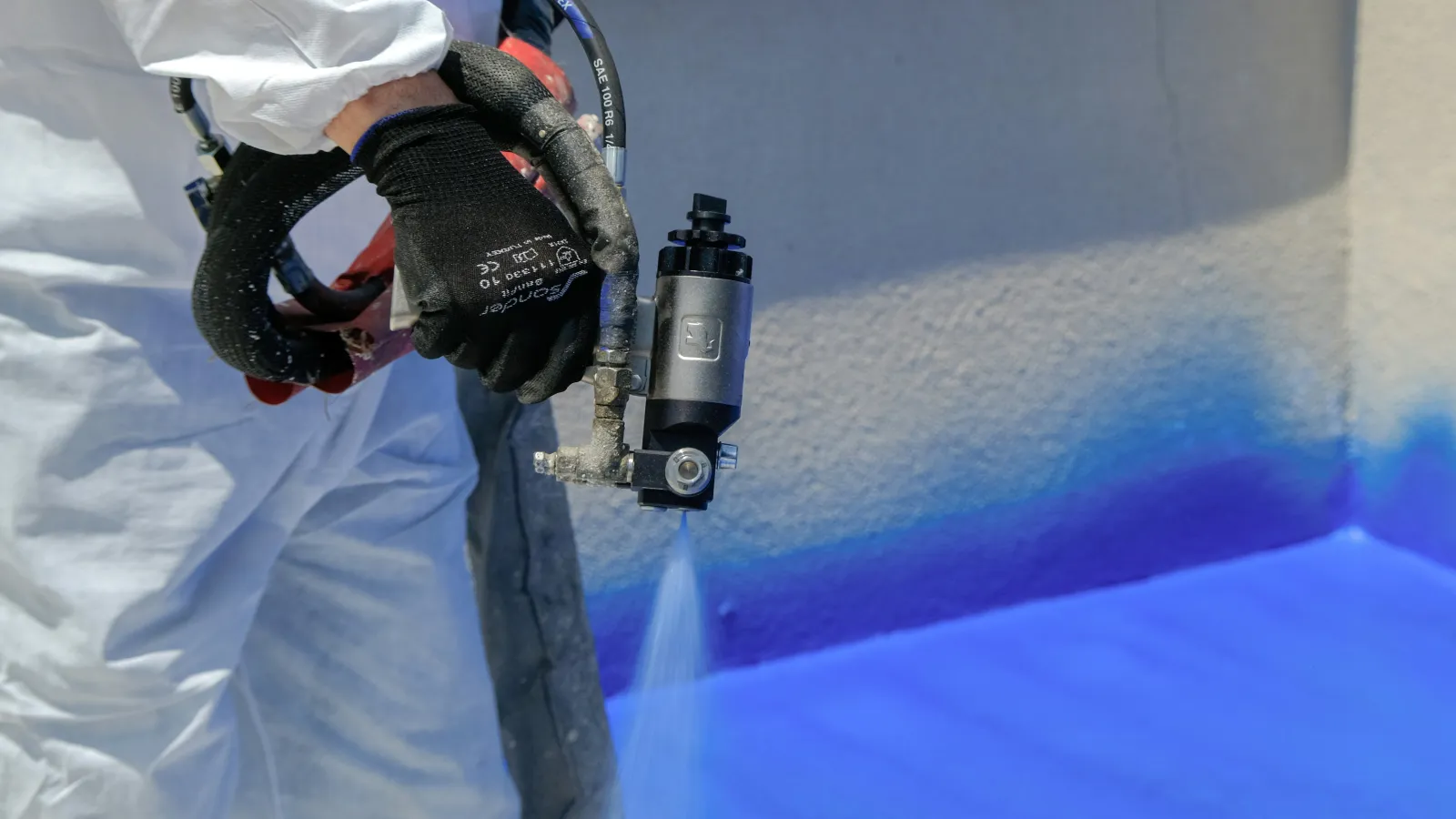Closed
cell spray
foam is a cutting-edge insulation material that combines energy efficiency,
durability, and versatility. It's widely used in residential and commercial
construction to provide superior thermal performance, prevent air leakage, and
increase structural integrity. What sets closed cell spray foam apart from
other options, such as fiberglass or open-cell foam? This blog discusses why
it's considered one of the most effective insulation solutions available.
Closed-cell spray foam insulation boasts an impressive R-value—one of the highest among modern insulating materials. With its dense structure and moisture-resistant properties, this insulation material is ideal for controlling indoor temperature and preventing mold growth. Whether you're building a new home or retrofitting an older structure, closed-cell spray foam
can make a noticeable difference in comfort and energy savings.
What Is the Difference Between Open and Closed Cell Spray Foam?
Spray
foam insulation comes in two main varieties: open cell and closed cell. While
both types are applied using similar methods, their performance, density, and
applications vary significantly.
Density and Composition
The
primary difference between the two lies in their cell structure. Closed-cell spray foam, as the name suggests, consists of tightly packed cells filled with gas or air. This compact structure results in higher density and exceptional thermal resistance, giving closed-cell spray foam an R-value of approximately 6.5 per inch. In contrast, open-cell spray foam has a lower density and
R-value, typically around 3.5 per inch, because its cells are not fully
enclosed.
Closed-cell foam is rigid and durable, while open-cell foam is more flexible and spongy. This makes closed cell spray foam insulation ideal for applications
where added structural strength is needed, such as in walls, roofs, or
foundation repairs.
Moisture Resistance
Another
key distinction is water resistance. Closed cell spray foam acts as a moisture
barrier, preventing water from seeping through. This makes it an excellent
choice for areas prone to humidity or water damage, such as basements or crawl
spaces. Open cell spray foam, on the other hand, is more porous and less
effective at blocking moisture.
Cost and Application
Closed
cell spray foam typically costs more upfront due to its higher R-value and
added benefits. However, its energy savings and long-term durability often
outweigh the initial investment. Open cell foam is more affordable and works
well for soundproofing or interior spaces without high insulation performance.
How Long Does Closed Cell Spray Foam Last?
One
of the standout features of closed-cell spray foam is its impressive lifespan. When properly installed, closed-cell spray foam insulation can last for
decades—often as long as the building itself. Its longevity stems from its
resistance to moisture, pests, and degradation, which are common issues with
traditional insulation materials like fiberglass.
Factors Affecting Longevity
While
closed cell spray foam insulation is durable, several factors can influence its
lifespan:
- Installation Quality:
Proper installation is critical to achieving maximum performance. Poorly
applied foam can lead to gaps, air leaks, or uneven coverage, reducing its
effectiveness.
- Environmental Conditions:
Harsh weather conditions, such as extreme heat or humidity, can affect the insulation's performance over time. Fortunately, closed-cell spray foam is
engineered to withstand these challenges.
- Maintenance: Unlike
fiberglass insulation, which may need to be replaced after 10-15 years,
closed cell spray foam requires minimal upkeep. Periodic inspections
ensure it continues to provide optimal thermal resistance.
A Long-Term Investment
Because
of its durability, closed cell spray foam insulation often eliminates the need
for frequent replacements. This can result in significant cost savings over the
years. For homeowners and business owners looking to maximize their investment,
closed cell spray foam offers unparalleled reliability and efficiency.
Is Closed Cell Spray Foam Better Than Fiberglass?
When
comparing insulation materials, it's essential to weigh factors like
performance, cost, and installation requirements. Closed cell spray foam
consistently outshines fiberglass in several key areas, making it a superior
choice for many applications.
Thermal Performance
The
R-value of closed cell spray foam is significantly higher than that of
fiberglass. While fiberglass insulation has an R-value of around 2.2-2.7 per
inch, closed cell spray foam boasts an R-value of approximately 6.5 per inch.
This means closed cell spray foam provides better thermal resistance, reducing
energy loss and maintaining indoor temperatures more effectively.
Air and Moisture Barrier
Unlike
fiberglass, which allows air and moisture to pass through, closed cell spray
foam creates an airtight seal. This not only improves energy efficiency but
also prevents issues like mold growth and water damage. In regions with extreme
weather conditions, closed cell spray foam insulation proves invaluable for
maintaining a comfortable indoor environment.
Durability and Longevity
Fiberglass
insulation tends to settle, compress, or degrade over time, reducing its
effectiveness. Closed cell spray foam, however, remains stable and intact for
decades. Its rigidity and resistance to external factors make it a more
reliable long-term solution.
Cost Considerations
While
the initial cost of closed cell spray foam is higher than that of fiberglass,
its superior performance and longevity often result in greater savings over
time. By reducing energy bills and eliminating the need for frequent
replacements, closed cell spray foam offers excellent value.
Environmental Impact
For
eco-conscious homeowners, closed cell spray foam may also be a more sustainable
option. Its energy-saving benefits reduce your home's carbon footprint, and
modern formulations often incorporate environmentally friendly components.
Summary
Closed
cell spray foam insulation is a game-changer in the world of energy efficiency
and home comfort. With its high R-value, moisture resistance, and durability,
it surpasses traditional options like fiberglass in nearly every category.
Whether you're looking to insulate a new build or upgrade an existing property,
closed cell spray foam is an investment that pays off in the long run.
Request an Estimate from USA Insulation
Are
you ready to transform your home with closed cell spray foam insulation? Contact USA Insulation
today to discuss your options and get a free estimate.
Make the smart choice for your home or business—choose USA Insulation to install your closed
cell spray foam insulation for unparalleled performance and peace of mind.



